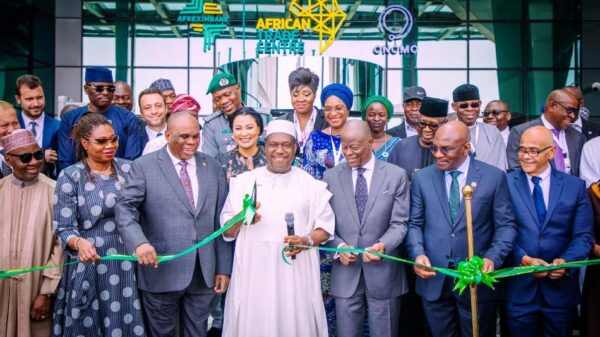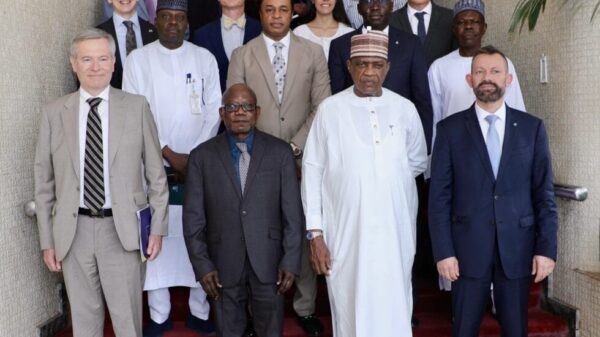Bogged by the stranglehold of economic burden, Nigeria’s new policies are yielding results as it starts enjoying a robust investment climate as exemplified by global data comparison and inflows.
Popular Nigeria’s Think Tank, the Independent Media and Policy Initiative (IMPI) reported in its weekly analysis released by the Chairman, Mr Niyi Akinsiju, on Tuesday in Abuja.
The outcome of the analysis is contrary to the narrative of an economy shorn of investors’ confidence.
Akinsiju came out with the analysis supporting the restored beneficial investment climate created by the new policies of President Bola Tinubu, mainly consisting in the harmonisation of the foreign exchange market and the removal of petroleum subsidy.
IMPI came to the conclusion after a comparative analysis between Nigeria and some other jurisdictions, including India and the UK that Nigeria is doing very well.
“Compared to the Manufacturers Association of Nigeria’s announcement of 767 companies shut down in 2023, an apparent public revelation to serve as a depression trigger for the country, people and government, the Small Business advocacy group in the United Kingdom frames the 345,000 business closures in that country as: “More businesses closing down than starting up for the first time in 12 years.”
“This, by our consideration, is an objective rendition of data. It is obvious that the 767 companies shut down in Nigeria do not in any way come close to the 345,000 closures recorded in the United Kingdom in that same period.
“Neither can the number be compared to the 460,000 companies that shut down every quarter, that is every three months, in China or the 10,655 Micro, Small and Medium Enterprises (MSMEs) shut down in 2022-2023 in India.
“As routinely rendered, we are further informed by the Indian data that there were over 11,000 new firms started for every one of the 175 shutdowns in 2022.
“Against this background, we require, for instance that while so much dust was raised over the exit of giant drug makers like GSK Plc and Sanofi, among others, the data should have also included statistics circulated by the National Agency for Food & Drug Administration and Control (NAFDAC) which indicated that 105 applications for the construction of drug manufacturing facilities have been approved across the country and that 35 percent of the approved applications have completed construction.
“This is inclusive of the fact that over 20 newly registered local drug manufacturers have cumulatively invested over $2 billion in the erection and completion of WHO-compliant facilities that manufacture quality pharmaceuticals and essential medicines for Nigerians,”it added.
IMPI also noted that advocacy groups that are always quick to dig up negative narratives, prefer to ignore the many positives in the economy inspite of global headwinds.
It said: We also note the condescending pretension by the usual suspects, the advocacy groups and politicians, over the news of the relocation of Unilever tea brand production to Nigeria. Ordinarily, this relocation news should not have elicited much excitement because it would have been a strictly business process decision but as it were, such decisions are now politicized and sensationalized to serve the mundane sentiments of opposition elements and corporate advocacy groups.
“Another jurisdictional contrast will suffice to prove this. While profits at China’s industrial firms fell 2.3 percent in 2023, their second straight yearly decline, Nigeria’s National Bureau of Statistic data show that Company Income Tax (CIT) rose by 73 percent year-on-year from N2.82 trillion in the 2022 financial year to N4.89 trillion in the 2023 financial year.
“This huge profit difference is recorded despite headwinds that had continued to buffet the economic space. The indication deriving from this is that whatever may be the challenges inherent in the Nigerian economic space, the country avails investors the best possible opportunities for returns on investment. This is the kind of economic accomplishment that corporate advocacy groups and politicians should celebrate.
“The impressive CIT accruals into the federation account are validated by the standing of Nigerian based companies on the Financial Times ranking of Africa’s 100 fastest growing companies in 2023.
“Nigeria’s incredible showing on that ranking manifests in companies based in the country occupying 27 places with two of them – Afex Commodities Exchange Ltd and Moniepoint Inc – leading the continental pack of 100 companies. This avails Nigeria 27 reasons to be jubilant despite the challenges the country has had to contend with.
“On the aggregate, this speaks to the resilience of Nigeria’s economy especially when situated in the trajectory of things to happen in the year 2024 coming in the build-up that can be ascribed to the policy deployment of President Bola Ahmed Tinubu.
IMPI outlined recent investments and posited that individuals and groups pushing a negative economic outlook are working from a wrong premise.
“May & Baker Nigeria is a pharmaceutical manufacturing company, reportedly focused on expanding its production lines to seven new products from a bouquet of 20 products that will be launched in 2024.
“Also, indigenous to Nigeria is Seplat ANOH Gas. The company is expected to reduce Nigeria’s carbon intensity and increase energy supply to the domestic market. Its technology-driven plant will deliver dry gas and condensates.
“The APM Terminals in Apapa is the biggest logistics terminal in Nigeria. It is part of AP Moller-Maersk and operates one of the world’s most comprehensive port networks. APM Terminals took on the concession of the Apapa container terminals in Nigeria about 17 years ago and has invested over $438 million in facility upgrades in the country’s port system. In June 2023, APMT received the largest container ship to ever call at the Lagos Port complex, Apapa, the Singapore-flagged Kota Contik, a 6,606 TEU container ship.
“In the same business universe is the private sector investors’ funded $1.5 billion Lekki Deep Seaport. The multi-purpose deep port in the Lagos Free Zone is the only currently operating deep seaport in the country and the largest seaport in Nigeria and one of the biggest in West Africa. It is to be expanded to have a capacity of handling around 6 million TEUs of containers and a significant volume of liquid and dry bulk uncontainerised cargoes. The port is to be equipped with ships able to transport over 14,500 containers.
“Another private sector Made-in-Nigeria icon is Air Peace. Currently, the largest airline in West and Central Africa, it is already changing the narrative around the appropriate cost of passengers’ ticket on the very busy and lucrative Lagos-London route.
“A growing entity in the financial service sector is the Norrenberger Financial Group. It provides individuals and institutions with a wide range of financial products, including asset management, private equity, development finance, investment banking, pensions, security trading, insurance, and digital banking, among others.
“AA Rano is a well-heeled Nigerian oil and gas brand, reputed for retail distribution of PMS, DPK, AGO, LPG, and lubricants. The company has over 600 trucks servicing its over 115 retail outlets across the country and has acquired a vessel, constructed a 56-million-litre tank farm facility, and is also constructing a 20,000-metric-ton LPG plant in Lagos. AA Rano has a broad plan to build its own 45,000 BPD crude oil refinery in the New Lekki Free Trade Zone area of Lagos State. The company has diversified into the aviation sector with its Rano Air, which has since acquired five (5) EMB145 aircraft.
“Just some days ago, the country attracted N23.8 billion in investments from food processors, GB Foods, which opened a N20 billion state-of-the-art tomato processing plant in Kebbi State to reduce the importation of tomato paste in the country. The GB Foods tomato plant can process 226,300 metric tonnes (MT) of tomatoes each year.
“There are still more, the commencement of operation at the 650,000 barrels a day, $ 19 billion Dangote Refinery is on course. The refinery has received its full complement of six million barrels of a mix of Nigerian and American crude preparatory to streaming. The crude oil in storage will facilitate the initial run of the refinery, as well as kick-start the production of diesel, aviation fuel and Liquefied Petroleum Gas (LPG) before subsequently progressing to the production of a premium motor spirit (PMS).It is Africa’s biggest oil refinery and the world’s biggest single-train facility,”it added.
The policy group contended that there are many positive stories from the Nigerian economy to show that the country is on track and urged the opposition to resist the temptation to demarket the country.




























